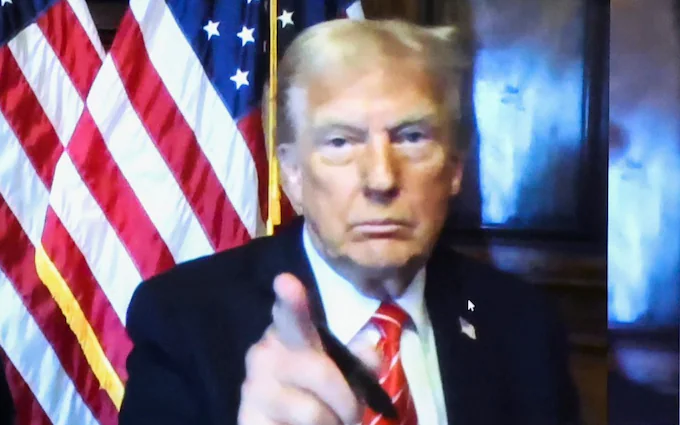In a case that has captivated national attention, former President Donald Trump recently faced a legal outcome called an “unconditional discharge.” This article will delve into what this sentencing entails, the surrounding circumstances, and its implications for Trump’s political and personal life. We will break down this complex legal scenario from the provided transcript and expert legal perspectives.
Understanding Unconditional Discharge
An “unconditional discharge” is a legal term to describe a scenario where a defendant is found guilty but is not subject to further punishment or conditions. This means the case is effectively closed without imposing fines, probation, or imprisonment. While the defendant is technically convicted, the lack of any punitive measures often leaves the defendant free to resume their life without ongoing legal restrictions.
In Trump’s case, the unconditional discharge signals the conclusion of a highly publicized legal battle. While he may not face immediate legal consequences, the weight of a conviction could carry significant ramifications, both politically and socially.
The Courtroom Dynamics
Transcript Insights
- Restricted Media Access: According to the transcript, cameras were not permitted in the courtroom, limiting public access to images and video recordings. Only a few still images of Trump and his attorney participating virtually were released.
- Trump’s Public Remarks: Trump took the opportunity to address the court and, consistent with his public appearances, denounced the case as a political attack. He described the prosecution as an effort to undermine his political campaign, further positioning himself as a victim of partisan politics.
Key Observations
- The absence of live visuals created a sense of exclusivity around the proceedings, leaving the public reliant on transcripts and official accounts for information.
- Trump’s remarks mirrored his campaign rhetoric, emphasizing themes of persecution and resilience.
Legal and Political Implications
Legal Consequences
While an unconditional discharge spares Trump from immediate penalties, it does not erase the legal finding of guilt. This carries several potential consequences:
- Reputational Damage: The conviction, even without penalties, may be used by political opponents to question his character and fitness for office.
- Precedent in Future Cases: Should Trump face legal challenges in the future, the unconditional discharge could serve as a point of reference for prosecutors seeking to establish a pattern of behavior.
- Appeals: As noted in the transcript, Trump has expressed intentions to appeal the decision, though the legal basis for such an appeal remains unclear. Appeals could prolong the case and keep it in the public eye.
Political Ramifications
- Rallying Support: Paradoxically, the case has bolstered Trump’s standing among Republican voters. Many view the prosecution as politically motivated, rallying around Trump as a symbol of resistance against perceived partisan attacks.
- Campaign Strategy: Trump has leveraged the case to galvanize his supporters, framing himself as a victim of injustice and a champion of conservative values. This aligns with his broader strategy of turning legal challenges into political opportunities.
A Closer Look at Trump’s Defense
Attorney Todd Blanch’s Arguments
Todd Blanch, Trump’s attorney, argued that the case was not a routine legal proceeding but a politically charged prosecution. Blanch characterized the prosecutor’s approach as “out of bounds” and suggested that the case’s framing undermined the integrity of the justice system.
Trump’s Perspective
In his remarks, Trump deflected blame for any alleged wrongdoing, attributing errors to accountants and other advisors. He reiterated his belief in his innocence and dismissed the charges as baseless.
This deflection strategy is consistent with Trump’s public persona, emphasizing loyalty and defiance in the face of adversity.
What Does This Mean for the Justice System?
The unconditional discharge in Trump’s case raises important questions about the intersection of law and politics:
- Perceived Politicization: Trump’s allegations of a politically motivated prosecution highlight concerns about the impartiality of the justice system.
- Media’s Role: With limited access to courtroom proceedings, the media’s portrayal of the case significantly influences public perception. This underscores the need for transparency in high-profile cases.
- Future Cases: The outcome sets a precedent for how similar cases might be handled, particularly those involving prominent political figures.
The Public’s Response
Supporters’ Perspective
Many of Trump’s supporters view the unconditional discharge as a victory, reinforcing their belief that the charges were unfounded. They see Trump’s resistance as emblematic of his commitment to fighting perceived injustices.
Critics’ Perspective
Critics argue that the lack of penalties undermines accountability and sets a concerning precedent for future cases. They believe the outcome reflects systemic issues in holding powerful individuals accountable.
Conclusion: A Complex Outcome
The unconditional discharge in Trump’s case represents a nuanced conclusion to a contentious legal battle. While Trump avoids immediate penalties, the conviction’s implications extend far beyond the courtroom. Politically, it has galvanized his base and reinforced his narrative of persecution. Legally, it underscores the challenges of navigating high-profile cases involving prominent figures.
As Trump continues to appeal the decision and leverage the case for political gain, the broader implications for the justice system and American politics remain a topic of intense debate. Ultimately, the unconditional discharge serves as a reminder of the intricate interplay between law, politics, and public opinion in shaping the outcomes of such cases.







